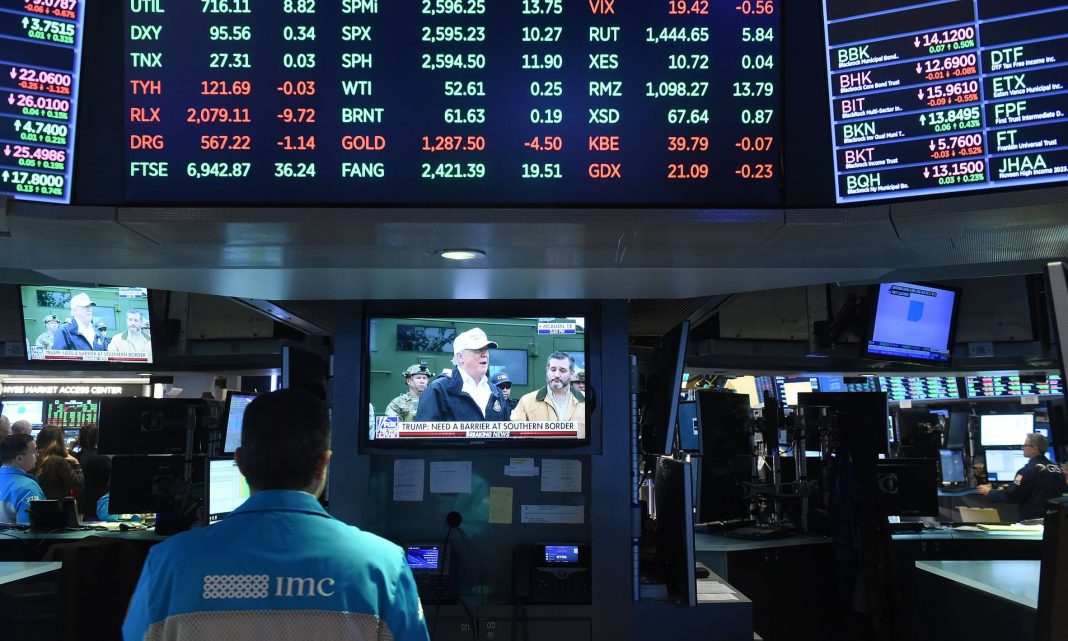The euro zone is “probably past” the worst of the economic crisis caused by the pandemic, European Central Bank President Christine Lagarde said, while urging authorities to prepare for a possible second wave.
There was a rise of at least 39,818 coronavirus cases across the United States on Thursday, the largest one-day increase yet. The governor of Texas temporarily halted the state’s reopening on Thursday as infections and hospitalizations surged.
“Even though we continue to see some pretty scary virus numbers coming out of the U.S., it’s not really dented sentiment – not to any sustained degree at least,” said Timothy Graf, head of macro strategy for EMEA at State Street Global Markets.
MMSCI’s gauge of stocks across the globe shed 0.05% following broad gains in Europe and Asia. The index is up approximately 40% since its March lows.
In morning trading on Wall Street, the Dow Jones Industrial Average fell 227.81 points, or 0.88%, to 25,517.79, the S&P 500 lost 17.49 points, or 0.57%, to 3,066.27 and the Nasdaq Composite dropped 39.10 points, or 0.39%, to 9,977.90.
The euro gained versus the U.S. dollar and is on track for its biggest weekly rise in three weeks after the ECB reaffirmed its dovish stance in the minutes of its policy meeting.
Concerns about the economic fallout from the surge in U.S. coronavirus cases helped bolster perceived safe havens. The dollar index =USD rose 0.012% while benchmark 10-year notes US10YT=RR were last up 3/32 in price to yield 0.6643%, from 0.674% late on Thursday.
Spot gold XAU= dropped 0.4% to $1,753.75 an ounce. U.S. gold futures GCc1 gained 0.15% to $1,764.70 an ounce.
Credit Suisse changed its position on global equities to “neutral” from “overweight”, saying it was taking profits after the recent rally, but kept its overweight positions in credit markets.
“The upcoming earnings season, a recent uptick in coronavirus infection numbers and political developments in the USA create a challenging backdrop for financial markets going into the summer,” said Michael Strobaek, Credit Suisse’s global chief investment officer.
Record high inventories and fears of declining demand pushed oil prices lower. U.S. crude CLc1 recently fell 0.34% to $38.59 per barrel and Brent LCOc1 was at $40.93, down 0.29% on the day.



























